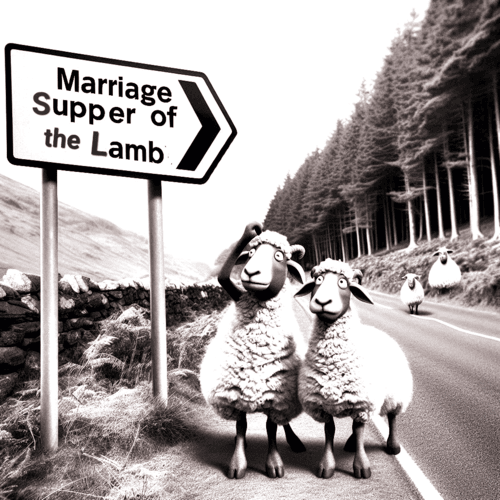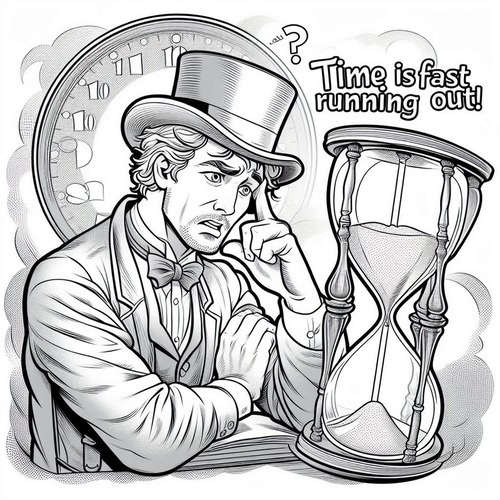Marriage Supper of the Lamb: The Grandest Celebration Ever Foretold
In God’s redemptive plan, few images capture the heart of His love quite as powerfully as the Marriage Supper of the Lamb. This isn’t mere metaphor, but the ultimate expression and celebration of God’s covenantal love—a moment that encompasses the entirety of salvation history and reveals the profound depths of Christ’s relationship with His church.
BIBLICAL FOUNDATIONS
Old Testament Typology
The seeds of this magnificent celebration are planted deep in the Old Testament narrative. Throughout Scripture, marriage serves as a powerful metaphor for God’s relationship with His chosen people. In the book of Hosea, we witness a stunning illustration of God’s love—a prophet married to an unfaithful wife, mirroring God’s unwavering commitment to Israel despite her repeated transgressions.
Isaiah’s writings provide equally compelling imagery. The prophet speaks of a divine wedding, where God restores and redeems His people, transforming their brokenness into a celebration of unprecedented joy. These Old Testament passages are more than mere poetry; they’re prophetic glimpses of the future ultimate reunion.
Israel’s feast traditions—particularly the Passover—foreshadow this great celebration. Each ritual meal pointed forward to a more profound spiritual reality, a future gathering where God would fully dwell with His people. For ever.
New Testament Revelations
The New Testament brings these prophetic whispers into sharp focus. Revelation 19:6-9 provides the most explicit description of the Marriage Supper, presenting a vision of unparalleled glory. Sample this:
“Then I heard what seemed to be the voice of a great multitude, like the roar of many waters and like the sound of mighty peals of thunder, crying out, ‘Hallelujah! For the Lord our God the Almighty reigns. Let us rejoice and exult and give him the glory, for the marriage of the Lamb has come, and his Bride has made herself ready.'”
Christ’s parables also throw light on this concept. In Matthew 22:1-14, the Parable of the Wedding Feast reveals the selective nature of divine invitation—a theme that resonates deeply with the doctrine of election. Similarly, the Parable of the Great Banquet in Luke 14:15-24 demonstrates God’s persistent invitation and sovereign grace.
REFORMED THEOLOGICAL UNDERSTANDING
Doctrine of Election and the Bride of Christ
From a Reformed perspective, the Marriage Supper represents the pinnacle of God’s sovereign election. This isn’t a celebration of human achievement, but of divine grace. Ephesians 5:25-27 captures this profound mystery:
“Christ loved the church and gave himself up for her, so that he might sanctify her, having cleansed her by the washing of water with the word, so that he might present the church to himself in splendor, without spot or wrinkle, holy and without blemish.”
The initiative is entirely God’s: Christ doesn’t respond to the church’s worthiness but makes her worthy through His sacrificial love. John 6:44 underscores this sovereign selection: “No one can come to me unless the Father who sent me draws them.”
Covenant Theology Perspective
The Marriage Supper represents the culmination of the covenant of redemption. Christ stands as the federal head, the ultimate mediator who perfectly fulfils God’s redemptive plan. This isn’t a negotiated arrangement, but a divinely ordained union where Christ presents a bride He has completely transformed.
THE ESCHATOLOGICAL SIGNIFICANCE
The Wedding Feast as Culmination of Redemptive History
This celebration marks the final triumph of Christ. It’s the moment when all of redemptive history converges—the complete restoration of God’s original creation, the fulfillment of every divine promise. Every moment of struggle, every act of redemption, finds its ultimate meaning in this grand celebration.
Characteristics of the Marriage Supper
The feast transcends human comprehension. It’s characterised by:
- Absolute perfection
- Complete, unbridled joy
- Perfect communion between Christ and His church
- Eternal worship that eclipses all previous human experiences
THEOLOGICAL REFLECTION: THE PROFOUND MYSTERY
At its core, the Marriage Supper reveals a love so profound that it reshapes our understanding of relationship, redemption, and divine purpose. It is not merely a wedding, but the wedding—the moment when Christ presents to Himself a bride He has lovingly prepared, purified by His own righteousness.
The theologian RC Sproul captured this mystery beautifully, noting that in this moment, we will understand grace in a way impossible during our earthly existence—seeing fully how undeserving we were, and how incomprehensibly loving God has been.
CONCLUSIONL MARRIAGE SUPPER OF THE LAMB
The Marriage Supper of the Lamb is the ultimate demonstration of God’s covenantal love. It’s Heaven’s most magnificent celebration—a moment that encapsulates the entirety of God’s redemptive plan. More than a future event, it’s the very purpose toward which all of history has been moving.
As we contemplate this glorious future, our hearts should overflow with worship. The Marriage Supper is God’s resounding “Yes” to His people—a celebration of covenant love that will resonate through eternity.
SCRIPTURE REFERENCES
- Revelation 19:6-9
- Ephesians 5:25-27
- Matthew 22:1-14
- Luke 14:15-24
- Hosea 2:19-20
- Isaiah 54:5-8
- John 6:44
- Romans 8:28-30
- 2 Corinthians 11:2
MARRIAGE SUPPER OF THE LAMB: RELATED FAQs
What exactly is the Marriage Supper of the Lamb? The Marriage Supper of the Lamb is a profound eschatological event described in Revelation, representing the ultimate union between Christ and His church. It symbolises the complete redemption of God’s people and the final triumph of Christ’s sacrificial love, where believers are presented as a pure and spotless bride to their Saviour.
- Who is invited to the Marriage Supper? According to Reformed theology, those invited are the elect—those chosen by God’s sovereign grace through Christ. This isn’t based on human merit, but on God’s unmerited favour, with believers being clothed in Christ’s righteousness and prepared for this ultimate celebration.
- When will the Marriage Supper take place? The Marriage Supper is understood to occur after Christ’s return and the final judgment, marking the culmination of redemptive history. It represents the transition into the eternal state, where God’s people will experience perfect communion with Christ in a glorified state.
Why is it called a “Marriage” Supper? The marriage metaphor illustrates the intimate, covenant relationship between Christ and His church. Just as a wedding represents the closest possible human union, this spiritual marriage symbolises the most profound spiritual intimacy—Christ fully united with His redeemed people.
- How should believers live in light of the Marriage Supper? Living in anticipation of the Marriage Supper transforms how Christians approach their daily walk with Christ. Believers are called to live with holy expectation, maintaining spiritual preparedness and growing in sanctification. This involves cultivating a deep love for Christ, pursuing holiness, and understanding their identity as the chosen bride of Christ.
- Will there be actual food at this supper? While the language suggests a feast, theologians interpret this more symbolically as complete spiritual satisfaction and joy. The “supper” represents the fullness of communion with Christ, where believers will experience ultimate fulfillment, worship, and intimate connection with their Saviour.
How is this different from other end-times celebrations? The Marriage Supper is unique in its intimate portrayal of Christ’s relationship with His church. Unlike other eschatological events that might focus on judgment or triumph, this celebration emphasises the deeply personal, covenantal love between Christ and His redeemed people, highlighting grace, restoration, and perfect unity.
MARRIAGE SUPPER OF THE LAMB: OUR RELATED POSTS
Editor's Pick

Why Do People Hate the Doctrine of Election?
…WHEN THEY REALLY SHOULDN’T Few Bible doctrines provoke stronger reactions than election. The idea that God chose some for salvation [...]

The Doctrine of Providence: Does God Really Govern All Things?
You’re sitting in the doctor’s office when the diagnosis lands like a thunderclap. Your mind races: Why this? Why now? [...]

No Decay, No Defeat: What It Means That Christ’s Body Saw No Corruption
On the Day of Pentecost, Peter stood before thousands and made a startling claim: David's body decayed in the tomb, [...]
SUPPORT US:
Feel the Holy Spirit's gentle nudge to partner with us?
Donate Online:
Account Name: TRUTHS TO DIE FOR FOUNDATION
Account Number: 10243565459
Bank IFSC: IDFB0043391
Bank Name: IDFC FIRST BANK






